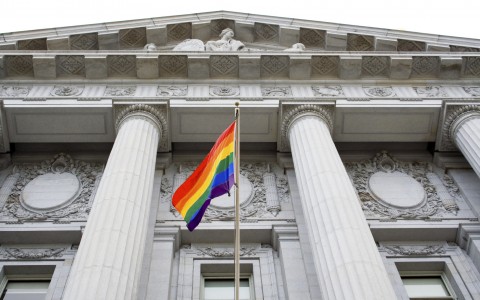 What is on the Line and How May it Affect Florida Residents
What is on the Line and How May it Affect Florida Residents
From abortion to gun rights, every big legal issue has its proponents and opponents. The issue of same-sex marriages is no different. Ever since the Supreme Court struck down the Defense of Marriage Act (DOMA) in 2013, states have begun changing their stance on same-sex marriage. In fact, there are currently 37 states that allow same-sex marriages. Just a few months ago, Florida became one of these states when it officially lifted its ban on same-sex marriages. Naturally, not everyone was happy with this decision, and a petition was filed with the Supreme Court in late 2014.
Case History
Recently, Florida joined the majority of states in the U.S., when it officially allowed same-sex couples to marry. The court ruling ending the ban on same-sex marriages in Florida was made in August 2014, by U.S. District Judge Robert Hinkle. This ruling held that Florida’s same-sex marriage ban violated the Constitution because it denied same-sex couples due process and equal protection under the Constitution. While Judge Hinkle held that the ban on same-sex marriages was unconstitutional, he also issued a temporary stay on his order until 90 days after the Supreme Court made a decision on a series of cases that were petitioning for a writ of certiorari. In October 2014, the Supreme Court denied certiorari to these cases, which set Judge Hinkle’s decision into motion. As of January 6, 2015, same-sex couples have been able to get married in Florida.
Recently however, there have been developments in the Supreme Court that may threaten to undo this decision. In January 2015, the Supreme Court agreed to hear a consolidated group of cases, looking to the issues of whether same-sex marriages are protected under the Constitution, and whether the Fourteenth Amendment requires a state to recognize a same-sex marriage that was lawfully licensed and performed out-of-state. The opening arguments in this case are set to be heard by the Supreme Court on April 28, 2015.
What’s on the Line
It’s no surprise that many same-sex marriages will be affected by the Supreme Court’s decision in the upcoming case. While there will be an effect on same-sex marriages regardless of the Supreme Court’s decision, the big question is how marriages will be affected.
A Decision against Same-sex Marriage
Should the Supreme Court rule that same-sex marriages are not protected under the Constitution, the past cases upholding same-sex marriages will be overturned. This is because the majority of cases upholding same-sex marriages are based on the principle that same-sex marriages are protected under the Constitution.
While this does mean that same-sex marriages would be banned in those states in which the court ruled in favor of same-sex marriages, it would not mean that same-sex marriages would be banned across the whole United States. Only those same-sex marriages that were licensed in states that allowed same-sex marriages through either the legislature or through the voters would remain valid. Unfortunately, only 11 states have taken such action, while 26 states, including Florida, have had same-sex marriage bans overturned by the courts.
This will naturally create problems for same-sex couples in Florida, even if an amendment is passed that would remove the 2008 language in the state constitution that banned same-sex marriages. In addition to losing a marriage license, same-sex couples would also lose any state and federal marital benefits gained during this time, since they would no longer have a valid marriage. In addition, even if the amendment is passed, questions would be raised about where to proceed from there.
Just as marriages would be affected, divorces and estate issues would become a problem as well. Regarding divorces, even if a person was validly married in another state, they would not be able to get a divorce in Florida any more. This is because, should the Supreme Court rule against the constitutionality of same-sex marriages, there would be no legally valid marriage for the Florida courts to have jurisdiction over. In addition, the disposition of parties’ properties upon death would be affected, since a spouse in a same-sex marriage would not obtain the same protections that a spouse in a heterosexual marriage might have.
A Decision for Same-sex Marriages
In the alternative, if the Supreme Court holds that same-sex marriages are protected under the Constitution and that the protections of the Fourteenth Amendment apply to same-sex marriages, then same-sex couples would gain a wider range of options. While same-sex couples that are married will not have any large difference in the way their marriage is treated in-state, they will have a broader range of activity due to the protections of the Fourteenth Amendment.
Currently, a couple married in a state allowing same-sex marriages will not be able to obtain state benefits, and will not be able to obtain a divorce, in states that have banned same-sex marriages. If the Supreme Court rules that the Fourteenth Amendment applies to same-sex marriages, then those same-sex couples will then be able to move freely throughout the nation, without having to worry about the status of their marriage.
Overall, there is no doubt that the upcoming cases will have an effect on Florida Residents, regardless of which side the Supreme Court comes out on.
